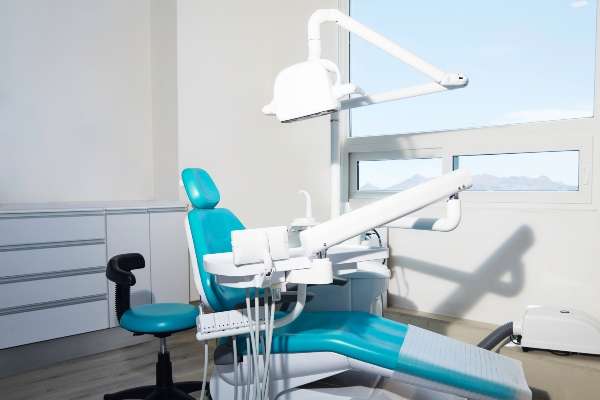 General dentistry is where practitioners provide various treatments for tooth decay, trauma, crowding, gum disease, and other oral conditions. According to the CDC, over 90% of people have at least one cavity. Tooth decay is one of the most common problems general dentists treat.
General dentistry is where practitioners provide various treatments for tooth decay, trauma, crowding, gum disease, and other oral conditions. According to the CDC, over 90% of people have at least one cavity. Tooth decay is one of the most common problems general dentists treat.
Understanding general dentistry treatment for cavities
General dentists offer various treatments for a wide array of conditions, including tooth decay. Dental cavities occur because of bacteria that live in plaque. The bacteria convert starches and sugars into acid, which damages the enamel. Since cavities range in severity, various treatment options are at the dentist's disposal.
Demineralization treatment
Enamel is the outer layer of a patient's teeth. It is also the hardest material produced by the human body. When teeth become exposed to bacteria, the enamel loses the minerals. Patients may notice white spots on their teeth due to mineral loss.
General dentists can reverse the early stages of decay. Most dentists treat their patients with fluoride to strengthen the enamel. Stronger enamel helps defend against acids.
Enamel and dentin treatment
If left untreated, the white spot continues to break down. Patients may notice the white area turns brown as a cavity form. The brown site is a small hole within the tooth. If the tooth continues to decay, the dentin begins to break down. Dentin is the material beneath the enamel. Once the cavity reaches the dentin, it progresses faster. General dentistry can address decay in the enamel and dentin in similar ways.
To treat cavities in the enamel and dentin, general dentists may clean the decay and use filling material. Dentists may need to place a crown in cases where the tooth becomes weakened. Once a patient has dentin decay, he or she may notice more sensitivity to hot and cold.
Pulp damage and abscess treatment
The pulp houses the blood vessels and nerves of the tooth. Nerves provide sensation, and the pulp keeps the tooth healthy. However, when decay reaches the pulp, it begins to damage it. As the pulp becomes damaged, it becomes inflamed and puts more pressure on the nerves.
Unfortunately, when the decay reaches the pulp, bacteria may enter through the cavity. The inflammation causes a pocket of pus to form, leading to an abscess. Abscesses cause extreme pain in the mouth, jaw, and face.
Once the pulp suffers damage, patients may need a root canal. The dentist removes the pulp during a root canal, cleans the tooth, and fills it in. Next, the dentist places a crown over the tooth to protect it.
With an abscess, patients still undergo a root canal. In some instances, dentists may also provide antibiotics. In severe cases, patients may require an extraction.
Conclusion
General dentistry is a practice in the dental field similar to primary care in the medical area. General dentists examine, diagnose, and prepare treatments for patients with a wide array of oral health concerns, including treatment for cavities.
Request an appointment or call St Lucie Center for Cosmetic Dentistry at 772-242-4124 for an appointment in our Port St. Lucie office.
Related Posts
Wondering whether it is OK to skip oral hygiene from time to time? Read on to learn from a general dentist why that is not a good idea. All general dentists preach the importance of good oral hygiene between dental cleaning visits for a reason. The long-term focus for general dentists is on helping their…
Dental patients can visit a general dentistry office for various preventative procedures that promote long-term oral health. For example, dental sealants can protect teeth susceptible to decay, and a dentist may recommend this treatment option for multiple reasons.Sealants are wafer-thin coatings of resin or plastic a dentist places over the chewing surfaces of back teeth…
When you experience a dental injury, serious tooth pain, or signs of a potential infection, it is important to schedule a general dentistry appointment. While dentists are equipped to treat a variety of oral health issues, many of these can be avoided with proper preventative care. Most dentists offer treatments that can help significantly reduce…





